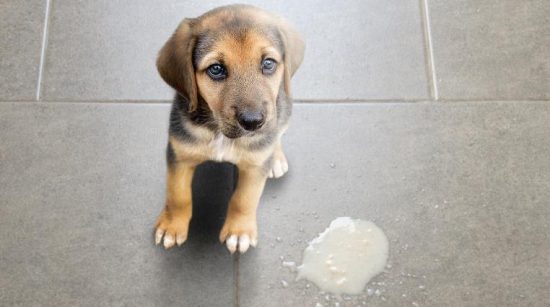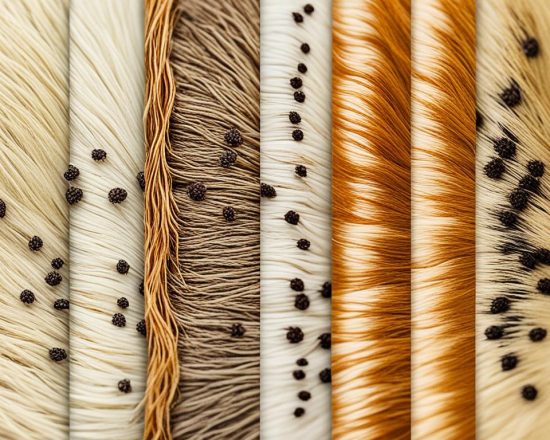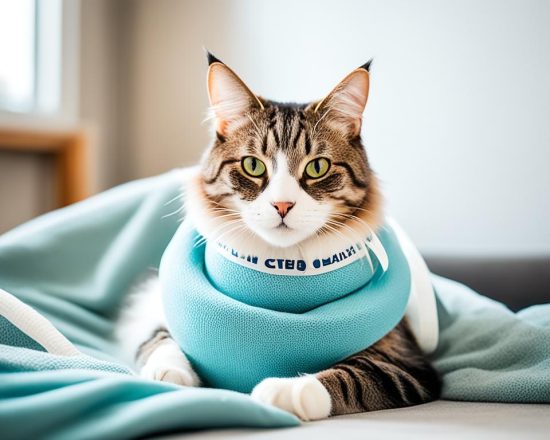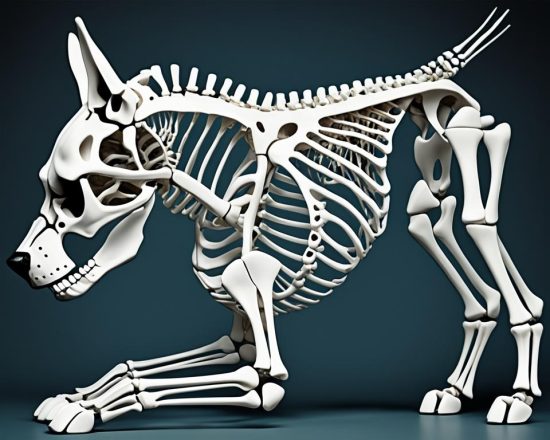Why Do Dogs Lick Their Paws? Explore Common Reasons
Explore the common reasons behind why dogs lick their paws, from allergies and dry skin to anxiety and boredom, and learn how to address this behavior.
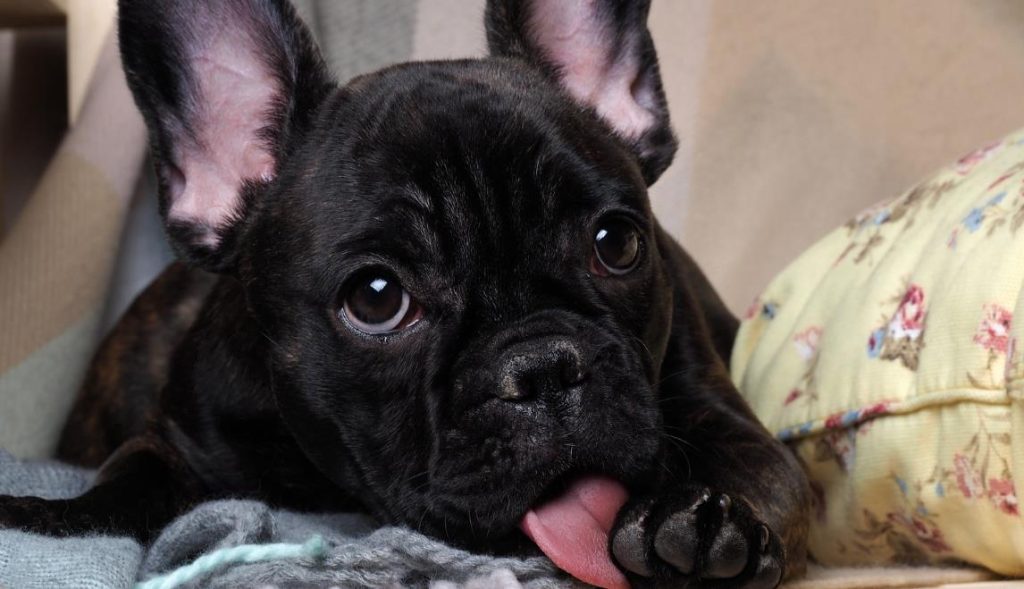
Did you know that the average dog licks their paws up to 5 times per day? This surprising statistic highlights the prevalence of this common canine behavior. But why do dogs lick their paws so much? Uncovering the reasons behind this habit is crucial for maintaining your furry friend’s health and wellbeing.In this blog, let’s discover why do dogs lick their paws.
According to veterinary experts, dogs may lick their paws for a variety of reasons, including self-grooming habits, skin irritation and allergies, aches or pains, boredom or separation anxiety, and even parasites. While occasional paw licking is normal, excessive or constant licking can be a sign of an underlying issue that requires attention.
The second source notes that paw licking can also indicate injuries, dermatitis, food allergies, and even pain from conditions like arthritis. The third source further elaborates on the common causes, including injuries, fleas and ticks, allergies, arthritis, and behavioral issues. Identifying the root cause is crucial in order to provide the appropriate treatment and management.
Introduction to Paw Licking Behavior
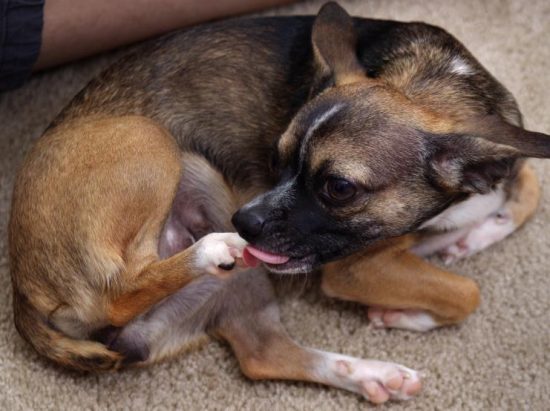
Dogs often engage in the habit of licking their paws, and this behavior can range from normal grooming to a potential sign of an underlying issue. Understanding the difference between what is your dog trying to warn about when they chew their paws? and what does paw chewing indicate? is crucial for addressing any concerns and ensuring your furry friend’s wellbeing.
Normal vs. Excessive Paw Licking
Occasional paw licking is a natural self-grooming behavior for dogs, as they use their tongues to remove dirt, debris, and maintain the cleanliness of their paws. However, if your dog seems to be licking their paws incessantly, it may be a sign of a deeper problem that requires further investigation. While most often, it’s usually nothing to worry about, aggressive licking or chewing could indicate pain, injury, or other underlying conditions that need to be addressed.
Potential Causes of Excessive Paw Licking
Dogs may excessively lick their paws for a variety of reasons, including skin irritation, allergies, injuries, arthritis, parasites, or even boredom and behavioral issues. Identifying the root cause is crucial in order to provide the appropriate treatment and management. By understanding the why do dogs like belly rubs? and should i let my dog chew on her paws?, you can better address the issue and help your furry companion find relief.
Self-Grooming Habits
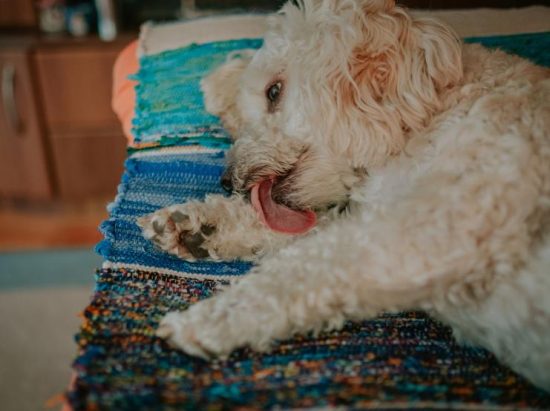
Dogs regularly lick their legs, paws, and tail as part of their natural self-grooming process. This behavior is considered a “normal, healthy” activity, as it helps them remove any debris or dirt that may have accumulated on their paws from their daily adventures. It’s a sign that your furry friend is taking the time to keep themselves clean and well-maintained.
When dogs come indoors after a walk or playtime outside, they may lick their paws to dislodge any small twigs, stones, or other particles that have become stuck. This is their way of ensuring their paws remain free of irritants and stay in optimal condition.
Occasional paw licking is also a normal part of a dog’s overall grooming routine. Just as humans use their hands to clean various parts of their body, dogs rely on their tongues to groom themselves and keep their fur and skin healthy. This self-care behavior helps them maintain a clean and comfortable physical state.
Skin Irritation and Allergies
Many dogs lick their paws excessively due to skin irritation and allergies. These issues can stem from environmental factors or even certain foods in the dog’s diet.
Environmental Allergies
According to veterinary experts, environmental allergens like pollen, grass, weeds, and dust can trigger allergic reactions in dogs, causing their paws to become dry, itchy, and uncomfortable. This can drive them to lick their paws repeatedly in an attempt to find relief from the irritation.
Food Allergies
In addition to environmental allergies, food sensitivities to ingredients like dairy, wheat, soy, beef, or chicken can also lead to paw licking in dogs. When a dog’s body reacts negatively to a particular food, it can cause an uncomfortable, itchy sensation on the paws that the dog tries to soothe by excessive licking.
Dry or Itchy Skin
Dry or irritated skin is one of the most common reasons why dogs may excessively lick their paws, according to veterinary sources. Conditions like dermatitis, which can be caused by allergies or other sensitivities, can make a dog’s paws feel itchy and prompt them to lick the affected area.
If your dog is chewing his paws at night or you’re looking for a home remedy for dogs licking paws, it’s important to identify and address the underlying skin irritation or allergy causing the behavior. Consulting with your veterinarian can help determine the root cause and develop an effective treatment plan.
Why do Dogs Lick Their Paws?
Dogs may lick their paws for a variety of reasons, including injuries and paw pain, as well as arthritis and joint discomfort. According to the first source, dogs may lick their paws if they have sustained an injury, such as a sting, cut, bite, ingrown nail, puncture, or burn. Licking can be a way for them to manage the pain and discomfort associated with these types of injuries.
Injuries and Paw Pain
The article also notes that arthritis, a common joint condition in dogs, can cause aches and pains that lead to paw licking as a coping mechanism. As the second source corroborates, injuries or general pain can prompt excessive paw licking in dogs. The third source expands on this, stating that arthritis can affect not just the larger joints, but also the individual toes, causing pain and inflammation that the dog may try to alleviate by licking their paws.
Arthritis and Joint Discomfort
Dogs that are suffering from arthritis or other joint-related issues may lick their paws excessively as a way to try and soothe the discomfort and inflammation they are experiencing in their paws and lower limbs. This behavior is often a clear indicator that the dog is in pain and may require veterinary attention to address the underlying cause of the joint discomfort.
Parasites and Pests
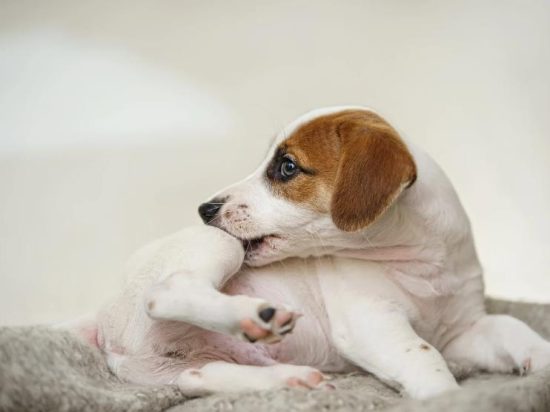
Parasitic infestations can be a common culprit behind excessive paw licking in dogs. Fleas, ticks, mites, and lice can all cause irritation and discomfort, leading dogs to compulsively lick and chew at their paws in an effort to find relief.
Fleas and ticks are notorious for causing itching and skin irritation in dogs. These pesky parasites can take up residence on a dog’s paws, burrowing into the skin and triggering an intense desire to lick and scratch. Even if the infestation is concentrated in one area, dogs may lick or bite multiple body parts in an attempt to alleviate the discomfort.
Mites and Lice
Mites, such as those that cause mange, and lice infestations can also lead to excessive paw licking in dogs. These microscopic organisms burrow into the skin, causing intense itching and inflammation that dogs try to soothe by licking the affected areas. Regular grooming and veterinary checkups are crucial for detecting and treating these types of parasitic infestations before they escalate.
Boredom and Behavioral Issues
Dogs may lick their paws excessively not just due to physical ailments, but also as a result of boredom or separation anxiety. According to the first source, these behavioral factors can lead to unhealthy habits like excessive paw licking, as well as other disruptive behaviors such as barking, digging, and destructive chewing. To discourage this paw licking behavior, the article suggests providing your dog with engaging items that will help them feel comfortable and entertained when left alone, such as their favorite blanket or chew toy.
The third source also mentions that behavioral and mental health issues can continue to cause a dog to lick and chew their paws excessively, even after any underlying medical conditions have been addressed. This highlights the importance of considering the psychological and environmental factors that may be contributing to the problem, in addition to addressing any physical causes.
For example, a dog left alone for long periods without mental stimulation or physical activity may turn to excessive paw licking out of boredom or distress. Providing more playtime, exercise, and interactive toys can help alleviate this why do dogs like belly rubs? type of compulsive paw licking behavior. Similarly, a dog experiencing why does my dog chew his paws at night? separation anxiety when their owner is away may lick their paws as a coping mechanism. In these cases, training and behavioral modification techniques may be necessary to help the dog feel more secure and content when alone.
Diagnosing the Cause
If your dog is excessively licking their paws, acting quickly to address the underlying issue is crucial. The moisture from constant licking can lead to secondary bacterial or yeast infections, which can further exacerbate the problem and cause even more discomfort for your furry friend. The best way to get to the issue’s root is to work closely with a veterinarian.
Veterinary Consultation
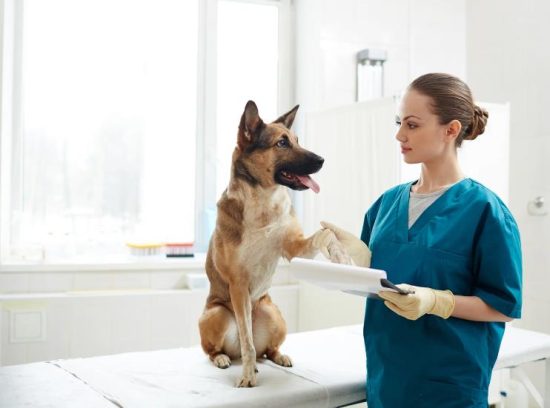
When it comes to how can i stop my dog from licking his paws?, seeking professional medical advice is essential. Your veterinarian will be able to conduct a thorough examination, ask about your dog’s symptoms and medical history, and recommend the appropriate diagnostic tests to determine the cause of the excessive paw licking. This may include blood work, skin tests, or other procedures to identify any underlying conditions, allergies, or infections that may be triggering the behavior.
Physical Examination
During the physical examination, your veterinarian will carefully inspect your dog’s paws, looking for signs of injury, inflammation, or irritation. They may also check for the presence of parasites, such as fleas or ticks, which can cause significant itching . By thoroughly examining your dog’s paws and other affected areas, the vet can help pinpoint the root cause of the issue and develop an appropriate treatment plan.
Treatment and Management
If your dog is excessively licking their paws, addressing the underlying cause is crucial to provide effective relief. Your veterinarian may recommend various treatments, such as topical anti-itch sprays, steroids to reduce inflammation, antibiotics for bacterial infections, or antifungals for yeast infections, depending on the specific issue. Addressing the root problem, whether it’s allergies, injuries, or a skin condition, is key to resolving the excessive paw-licking behavior.
Addressing Underlying Causes
Once the veterinarian has identified the underlying cause of your dog’s paw licking, they can develop a comprehensive treatment plan. This may involve medications to manage allergies, pain relief for arthritis or injuries, or antimicrobial infection treatments. Dietary changes, such as switching to a hypoallergenic food, may also be recommended to address food allergies that could trigger paw licking.
Preventative Measures
In addition to addressing the underlying causes, you can take several preventative measures to help stop your dog from licking their paws. Regular grooming, including trimming fur between the pads and keeping the paws clean, can help minimize irritation. You can also try using paw wax or balms to protect the skin and provide a barrier against environmental allergens. Home remedies, such as applying a cold compress or using a cone collar to prevent excessive licking, may also be effective in some cases.
By working closely with your veterinarian and implementing a tailored treatment plan, you can help stop your dog from excessively licking their paws and prevent further complications. Addressing the underlying cause and taking preventative measures can go a long way in restoring your furry friend’s comfort and well-being.
Complications of Excessive Paw Licking
If your dog is repeatedly licking their paws, it’s important to address the underlying cause promptly. The constant moisture from excessive paw licking can lead to secondary bacterial or yeast infections, causing even more irritation, redness, swelling, and further licking. This vicious cycle can quickly escalate, making the issue more difficult to resolve.
Bacterial or Yeast Infections
The moist environment created by excessive paw licking provides the perfect breeding ground for harmful bacteria and fungi. If left untreated, these infections can spread, leading to painful conditions like pododermatitis – a bacterial infection of the paws that can be challenging to treat. It’s crucial to work with your veterinarian to identify and address the root cause before these secondary issues arise.
Skin Irritation and Inflammation
Constant licking can also cause irritation and inflammation of the skin on the paws. This can result in redness, swelling, and even cracking or peeling of the skin, making the should i let my dog chew on her paws? even more uncomfortable for your canine companion. Addressing the underlying problem, whether it’s allergies, an injury, or something else, is essential to prevent this cycle of discomfort and further damage.
Summary
Dogs may lick their paws for various reasons, ranging from normal grooming habits to more serious underlying issues like allergies, injuries, arthritis, parasites, or behavioral problems. It is important to identify and address the root cause to prevent the paw licking from becoming a chronic problem that leads to secondary infections or other complications.
Working closely with a veterinarian to diagnose and treat the issue is crucial for the dog’s health and well-being. By understanding the potential causes of excessive paw licking and taking appropriate action, pet owners can help their furry companions find relief and maintain their overall comfort and happiness.
Addressing the problem promptly and effectively is key, as untreated paw licking can escalate into more severe conditions. With the right approach and medical guidance, pet owners can ensure their dogs’ paws remain healthy and free from irritation, allowing them to enjoy their daily activities without distress.
FAQs on why do dogs lick their paws
Why does my dog lick her paws so much?
Dogs may lick their paws excessively for various reasons, including skin irritation, allergies, injuries, arthritis, parasites, or behavioral issues like boredom or separation anxiety.
Why does my dog lick his leg so much?
Excessive paw or leg licking can indicate underlying health issues like skin conditions, injuries, arthritis, or parasites. It’s important to identify and address the root cause.
Is there a home remedy for dogs licking paws?
While some home remedies may provide temporary relief, it’s best to work with a veterinarian to diagnose and treat the underlying cause of excessive paw licking to prevent complications.
Why does my dog chew his paws at night?
Nighttime paw chewing can be a sign of pain, irritation, or anxiety. Potential causes include allergies, injuries, arthritis, or behavioral issues that may need to be addressed by a veterinarian.
How can I stop my dog from licking his paws?
The best way to stop excessive paw licking is to work with a veterinarian to identify and treat the underlying cause, whether it’s a medical issue or a behavioral problem.
What is your dog trying to warn about when they chew their paws?
Excessive paw chewing or licking can be a sign that your dog is trying to communicate an issue, such as pain, irritation, or a health problem that requires attention.
What does paw chewing indicate?
Paw chewing can indicate a variety of issues, including allergies, injuries, arthritis, parasites, or even behavioral problems. It’s important to identify the root cause to provide the appropriate treatment.
Should I let my dog chew on her paws?
It’s generally not recommended to allow a dog to constantly chew or lick their paws, as this can lead to skin irritation, infections, and other health problems. It’s best to work with a veterinarian to address the underlying cause.

